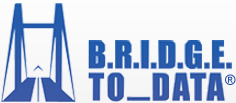As I’ve discussed before, I actually stopped performing prospective trials in wound care because the trials were not “generalizable,” meaning, the patients enrolled in studies to evaluate wound healing modalities bear no resemblance to the patients we see. I talked about this recently in this article.
That means the only way we are going to figure out what works for real patients with wounds is to use real-world data. The US Wound Registry (USWR) has set the standard for managing bias in real world registries derived from electronic health records (here’s our white paper on the subject.)
The USWR participates in B.R.I.D.G.E. TO DATA®, which profiles population healthcare databases for use in epidemiology and health outcomes research. The B.R.I.D.G.E. service is unique and because there’s finally a growing interest in finding solutions using the data that are already available, I thought you might like to know more about it.
–Caroline
Search Engine for Population Healthcare Research Databases
B.R.I.D.G.E. TO DATA® is a unique online reference profiling population healthcare databases for use in epidemiology and health outcomes research. Drawing on decades of experience with databases, DGI, LLC (nonprofit) developed this updated tool and launched it in 2009 to allow users to identify databases with relevant populations for their research.
This user-friendly resource allows users to:
- View an interactive map & database listing
- Search for databases by region/country & other criteria
- Review individual database attributes
- Compare database elements side-by-side
- Export search results into Excel
- Modify or Narrow search results
- Save searches
- Create collections of database profiles
- Access a Glossary of international terms (e.g., coding systems)
This resource also serves as:
- An educational tool for public health research, and
- A template for health systems planners to design or refine their healthcare data.
B.R.I.D.G.E. TO DATA® currently has ~325 standardized database profiles from 42 countries. Each profile includes 75 core data fields describing the database, population type, coding systems, data on drugs/diagnoses/procedures, cost information, validation & linkage, administrative/contact information, and a list of recent publications. More profiles are being added on a regular basis; our newest additions include 27 biobank and 33 genetic data fields.
(NOTE: This site does not contain any proprietary data or actual datasets from any healthcare database.)
Types of databases profiled include:
- Longitudinal EMR and claims
- Drug or disease-specific cohorts
- Registries
- Genetic databases & Biobanks
- National statistics and surveys
- National surveillance systems
- Spontaneous reporting systems
- Clinical trials
The site has various tutorials (video format) demonstrating how users can use the resource. Prior to signing up, one can view a sample set of five complete database profiles and poster presentations of case studies using the resource.
B.R.I.D.G.E. TO DATA® is a subscription online service; subscription plans and rates can be found at https://www.bridgetodata.org/subscription-rates. Users are bound by Terms of Use and are encouraged to read the FAQs for answers to common questions. Customer service is available by emailing info@bridgetodata.org.
- The B.R.I.D.G.E. TO DATA® team also offers assistance on database-related projects. Some examples of how the team can help your studies succeed include:
- Conduct comprehensive database searches (using B.R.I.D.G.E., literature, their professional network, and other sources);
- Identify data sources meeting your study’s unique criteria;
- Communicate with data vendors on your behalf;
- Facilitate data access (third-party data requests);
- Develop searchable database repositories customized for your team;
- Create tables of multi-source data elements; and
- Help incorporate B.R.I.D.G.E. as a database teaching tool in your classroom.
The B.R.I.D.G.E. TO DATA® Team can be contacted any time for a proposal (info@bridgetodata.org).

Dr. Fife is a world renowned wound care physician dedicated to improving patient outcomes through quality driven care. Please visit my blog at CarolineFifeMD.com and my Youtube channel at https://www.youtube.com/c/carolinefifemd/videos
The opinions, comments, and content expressed or implied in my statements are solely my own and do not necessarily reflect the position or views of Intellicure or any of the boards on which I serve.





Dr. Fife.
Not only are you a brilliant writer, but a professional and personal inspiration to many (especially me.)
What we need to continue to develop (based on WHI and other platforms) are better wound care ontologies.
Only then can proper Bayesian methods be employed so that real world RCT’s can be rolled out that give meaningful results when ALL wound care modalities are employed in real world environments.
Respectfully,
Dr. Goldberg